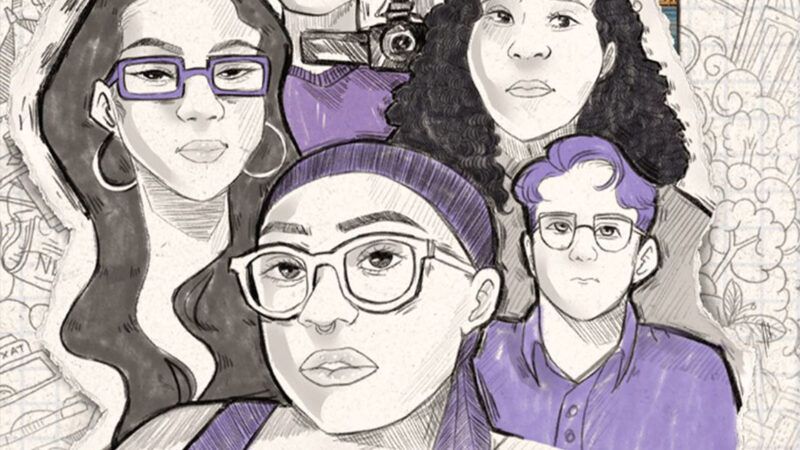COVID Diaries NYC
The HBO documentary provides plenty of examples of people conflating moral and medical judgments.

Researchers at the University of California, Irvine, recently described a psychological experiment that found "moral judgments impact perceived risks from COVID-19 exposure." The HBO documentary COVID Diaries NYC, which assembles contributions from five young filmmakers, provides further evidence to support that hypothesis.
Late one night, 21-year-old Marcial Pilataxi is hanging out on a Manhattan street with a few friends when they are accosted by an angry, inebriated cyclist. After stopping and throwing his bicycle down in disgust, he berates them for congregating without face masks, thereby endangering their grandmothers.
The rant is comical, since biking while intoxicated is hardly a model of safe behavior and the drunk guy is not wearing a mask either. But Pilataxi takes the admonition to heart and later tearfully apologizes to his grandmother at the apartment they share for not thinking of her welfare. He promises to stop going out with his friends.
Meanwhile, COVID Diaries NYC treats the protests provoked by George Floyd's death reverently. Those demonstrations attracted large groups of frequently unmasked people who gathered in close proximity for extended periods of time while shouting slogans—all factors that increase the risk of virus transmission.
A more subtle conflation of moral and medical judgments, a phenomenon prevalent during the COVID-19 crisis, is apparent in 16-year-old Shane Fleming's video diary. His father, a restaurant manager, expresses amazement at the complete shutdown of both indoor and outdoor dining. Those activities were deemed "nonessential," if not utterly frivolous, by the same politicians who praised the protests.


Show Comments (25)